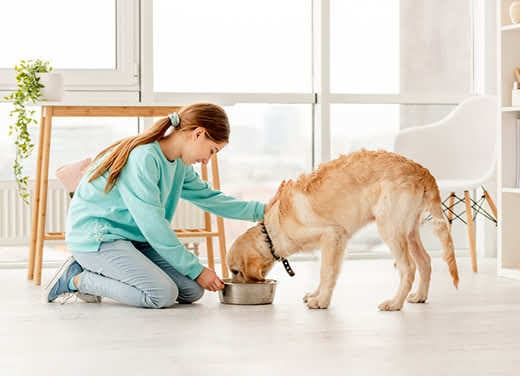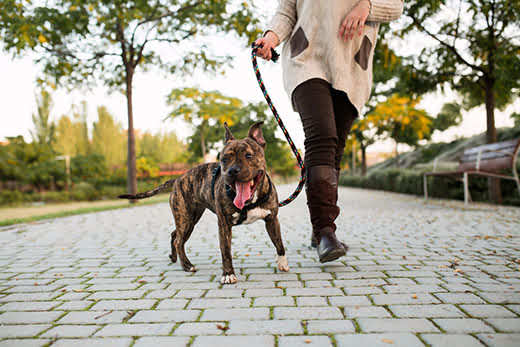
-
Find the right food for your pet
Take this quiz to see which food may be the best for your furry friend.
Find the right food for your pet
Take this quiz to see which food may be the best for your furry friend.
Featured products
 Adult Healthy Cuisine Roasted Chicken, Carrots & Spinach Stew Dog Food
Adult Healthy Cuisine Roasted Chicken, Carrots & Spinach Stew Dog FoodDelicious roasted chicken paired with tender vegetables in a succulent stew
Shop Now Small & Mini Savory Stew with Chicken & Vegetables Dog Food
Small & Mini Savory Stew with Chicken & Vegetables Dog FoodA delicious complement to the nutrition of Science Diet Small & Mini 7+ dog food
Shop Now Adult 7+ Perfect Digestion Chicken, Whole Oats & Brown Rice Recipe Dog Food
Adult 7+ Perfect Digestion Chicken, Whole Oats & Brown Rice Recipe Dog FoodScience Diet's breakthrough nutrition supports ultimate digestive well-being & healthy microbiome for dogs age 7+
Shop NowFeatured products
 Adult Savory Entrée Can Variety Pack Cat Food
Adult Savory Entrée Can Variety Pack Cat FoodPrecisely balanced nutrition with the delicious taste of savory minced chicken to help fuel the energy needs of cats during the prime of their life
Shop Now Adult 7+ Senior Vitality Chicken & Vegetable Stew Cat Food
Adult 7+ Senior Vitality Chicken & Vegetable Stew Cat FoodImproves Everyday Ability to Get Up & Go
Shop Now Adult 7+ Tender Tuna Dinner Cat Food
Adult 7+ Tender Tuna Dinner Cat FoodWith delicious chunks in a decadent gravy
Shop Now -
Dog
- Dog Tips & Articles
-
Health Category
- Weight
- Food & Environmental Sensitivities
- Urinary
- Digestive
- Joint
- Kidney
-
Life Stage
- Puppy Nutrition
- Adult Nutrition
- Senior Nutrition
Cat
- Cat Tips & Articles
-
Health Category
- Weight
- Skin & Food Sensitivities
- Urinary
- Digestive
- Kidney
-
Life Stage
- Kitten Nutrition
- Adult Nutrition
Featured articles
 Do Dogs and Cats have Belly Buttons?
Do Dogs and Cats have Belly Buttons?Learn whether cats & dogs have belly buttons like humans, what the function is, and if there are any health concerns associated with it.
Read More Does My Pet Hate Me?
Does My Pet Hate Me?Learn tips for bonding with your pet if you've ever thought, 'My dog doesn't like me, or 'Why do I have a standoffish cat?'
Read More Why Are Dogs and Cats So Cute?
Why Are Dogs and Cats So Cute?If waggy puppy dog tails and furry kitten yawns make you swoon, you're not alone. Why are cats so cute? And, dogs too! Let's find out!
Read More -

Adding a new companion to the household creates warm, fuzzy feelings of excitement and compassion. But you may wonder, especially if you're a potential first-time dog owner, "Do I have time for a dog? And how much attention does a dog need each day?" Let's run through how to make your new dog feel welcome and how you'd integrate a dog into your schedule. Let's dig a little deeper into understanding how much time you need for a dog.
How Can I Make My Dog Feel Welcome?
As a pet parent, it's important to remember that your first few weeks with your new pet will look different until you've established a routine. When bringing a pet home, you're entering into a transitional period as you learn about each other.
During the first week of being a pet parent, you'll focus on gathering all the supplies needed, making space in your home for a kennel or dog bed, showing your pet around the home, exploring the yard on a leash, meeting human family members, possibly switching to new dog food, working on training skills, bonding with your pet and meeting a veterinarian for an initial exam and checkup.
After experiencing all these firsts together, you'll fall into the rhythm of daily life that works for everyone in the household, including your new dog. With that said, there are occasional commitments to think about, such as follow-up veterinary visits, time to shop for pet supplies and scheduling appointments with the groomer.
How Much Time Do You Need for a Dog?
At the start, you may want to spend all your waking hours playing fetch and cuddling your new pet, but then reality sets in — you have to tend to your other commitments, too. Here's a peek at how much time your pet may require once settled into a routine:
- 6:00-6:15 a.m.: Let the dog outside to potty. Or, you may need to take your pet on a short walk if you live in an apartment or condo without a designated yard space for your pet.
- 7:00-7:15 a.m.: Feed your pet breakfast. Provide fresh water and kibble so that your pet is fueled for the first half of the day. Remember to wash the bowls each day to reduce bacteria growth.
- 12:00-12:30 p.m.: Midday check-in. If you work from home or have a pet sitter on speed dial, have them give your fur baby a potty break around noon. Some pets also like a small lunch, so offer that if your dog is interested. Always have fresh water available.
- 5:30-5:45 p.m.: Let your pet outside to potty. This might be a quick visit to the yard or a walk around the block. During this time, casually socialize with your pet by working on a few obedience commands or tossing a ball for them to fetch. If they've been alone for a few hours, they'd love the attention!
- 6:00 p.m.: Feed your pet as you prepare dinner for yourself.
- 7:30-8:30 p.m.: Spend quality time with your pet. This might be a long walk on a park trail or maneuvering an agility course set up in the garage. This one-on-one time is important for mental nurturing and bonding with your pet. It's a good idea to also use this time for basic at-home grooming, like brushing your dog's fur and teeth.
- 9:45-10:00 p.m.: Give your pet a bedtime potty break. If you've been active earlier in the evening your pet may not need to go, but it's nice to offer before the two of you curl up for the evening. This step is especially important for puppies who are potty training and can't hold their urine as long as an adult dog.
This schedule reflects a typical Monday through Friday workweek. On the weekend or other days off, you'll likely shift your schedule a bit. Consider adding time for a doggie play date at the dog park, training classes or outdoor adventures. The weekends are also a good time to make your home more pet friendly. Maybe you need to install fencing, shop for an additional dog bed or clean up waste in the yard.


Tasty Tips
Do I Have Time for a Dog?
A dog shouldn't be alone for more than six to eight hours each day, according to the American Kennel Club. If they are, your pet may begin to experience separation anxiety, a symptom of feeling stressed from isolation. Your pet may chew or scratch personal property or the walls and doors in an effort to get out of the home and find you.
You can always lean into a pet sitter, dog walker, doggie daycare, neighbor or other family members to assist with pet care throughout the day. However, these folks should supplement your pet care schedule, not become the primary caretakers of your new dog. You are the pet parent, first and foremost.
Rest assured, your pet loves to drift off to dreamland when you're busy with other tasks. According to the National Sleep Foundation, the average dog sleeps 12 to 14 hours daily. Puppies, older dogs and large breeds like Newfoundlands and mastiffs snooze through even more hours each day.
Making the decision to adopt a dog requires careful consideration of your current time and financial commitments. Ask yourself: Do I have gaps in the evening that I'd like to fill with a canine companion? Can I make time at the start of my day for potty time and feeding the dog? Do I have extra funds to pay for food, vet care and pet supplies? Do I enjoy being active and going for walks each day? Overall, do I have time for a dog and their needs in addition to taking care of my daily responsibilities? These are all things to consider when adopting a pet and making them part of your daily life.


Angela Tague is a pet mom and writer living in the Midwest. When she's not making a mess in the kitchen, exploring nature trails with her dog, or attending a yoga workshop, she's writing full-time for multiple lifestyle and technology brands. You can find her on Twitter and LinkedIn @AngelaTague.
Related products

A delicious complement to the nutrition of Science Diet Small & Mini 7+ dog food

Delicious braised beef paired with tender vegetables in a succulent stew

Delicious roasted chicken paired with tender vegetables in a succulent stew

Science Diet's breakthrough nutrition supports ultimate digestive well-being & healthy microbiome for dogs age 7+
Related articles

Your dog's coat and skin are a big part of your dog's overall health. Ensure you keep your dog's coat healthy, by following these simple tips.

Hill's Science Diet Small & Toy Breed dog foods are designed to meet the nutritional needs for your small dog at every life stage. Learn more here.

Large and giant breed puppies have different nutritional needs than other dogs. Learn how to provide the special care they need to grow up big and strong.

Learn about choosing the right food for your mature or older dog, ensuring he receives the correct balance of nutrition.

Put your dog on a diet without them knowing
Our low calorie formula helps you control your dog's weight. It's packed with high-quality protein for building lean muscles, and made with purposeful ingredients for a flavorful, nutritious meal. Clinically proven antioxidants, Vitamin C+E, help promote a healthy immune system.
Put your dog on a diet without them knowing
Our low calorie formula helps you control your dog's weight. It's packed with high-quality protein for building lean muscles, and made with purposeful ingredients for a flavorful, nutritious meal. Clinically proven antioxidants, Vitamin C+E, help promote a healthy immune system.




